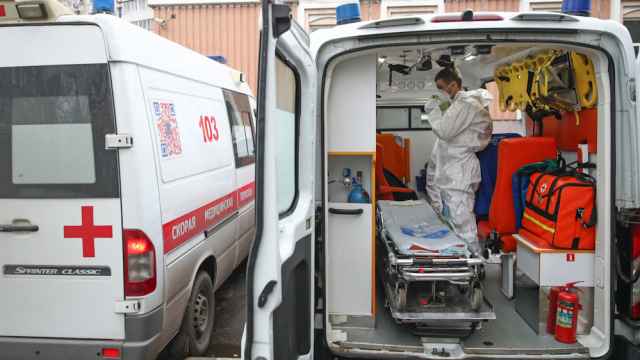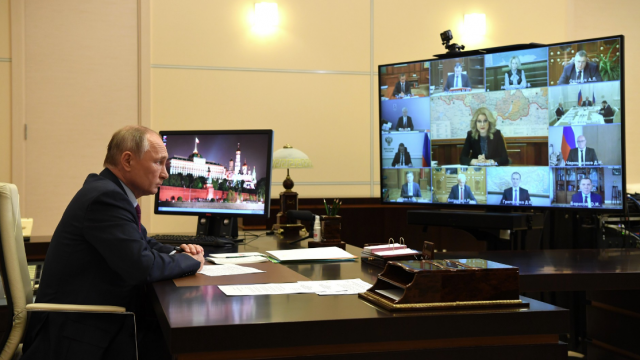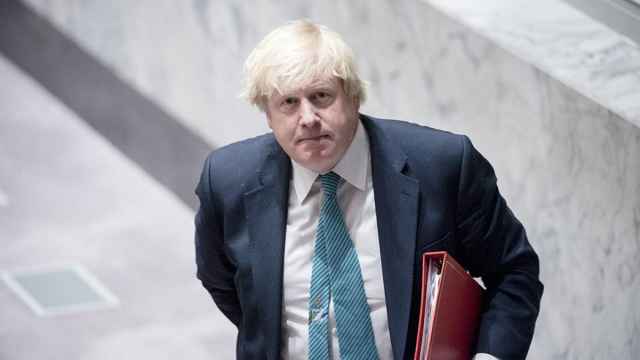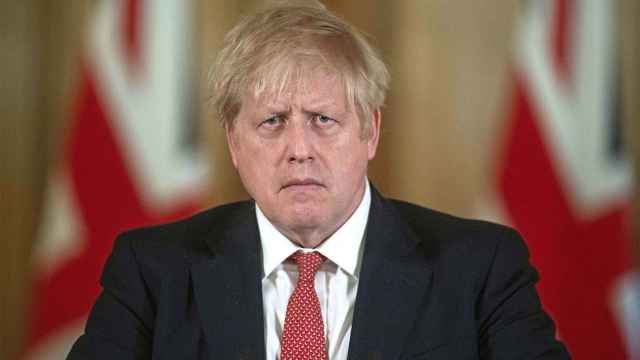Russia's ambassador to London has denied accusations by Britain and its allies of helping hackers target labs conducting coronavirus vaccine research, in a UK television interview to be broadcast on Sunday.
Andrei Kelin said the allegations Thursday by Britain, the United States and Canada that a hacking group called APT29 was behind the online attacks, and "almost certainly" linked to Russian intelligence, made "no sense."
"I don't believe in this story at all, there is no sense in it," he told the BBC's Andrew Marr Show, adding he had learned about the hacking collective's existence from British media reports.
"In this world, to attribute any kind of computer hackers to any country, it is impossible."
Kelin, who was appointed Moscow's top envoy in Britain last November, also rejected a separate claim by London that "Russian actors" sought to disrupt last year's UK general election.
British Foreign Secretary Dominic Raab said Thursday the perpetrators had circulated leaked trade documents between Britain and the United States, in a bid to sow greater division in the contest.
"I do not see any point in using this subject as a matter of interference," Kelin said.
"We do not interfere at all. We do not see any point in interference... we will try to settle relations and to establish better relations than now."
Russia and Britain have been at loggerheads since Moscow was accused of trying to kill double agent Sergei Skripal with a powerful military-grade nerve agent in 2018.
The attack in Salisbury, southwest England, came 12 years after the radiation poisoning of former spy Alexander Litvinenko in London.
Again, Russia has denied involvement and Kelin said the country is ready to move on from the controversies.
"We are prepared to turn the page and we are prepared to do business with Britain," he added.
A Message from The Moscow Times:
Dear readers,
We are facing unprecedented challenges. Russia's Prosecutor General's Office has designated The Moscow Times as an "undesirable" organization, criminalizing our work and putting our staff at risk of prosecution. This follows our earlier unjust labeling as a "foreign agent."
These actions are direct attempts to silence independent journalism in Russia. The authorities claim our work "discredits the decisions of the Russian leadership." We see things differently: we strive to provide accurate, unbiased reporting on Russia.
We, the journalists of The Moscow Times, refuse to be silenced. But to continue our work, we need your help.
Your support, no matter how small, makes a world of difference. If you can, please support us monthly starting from just $2. It's quick to set up, and every contribution makes a significant impact.
By supporting The Moscow Times, you're defending open, independent journalism in the face of repression. Thank you for standing with us.
Remind me later.






